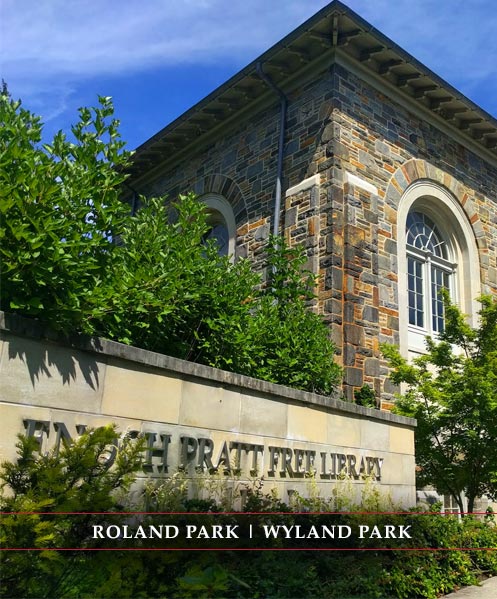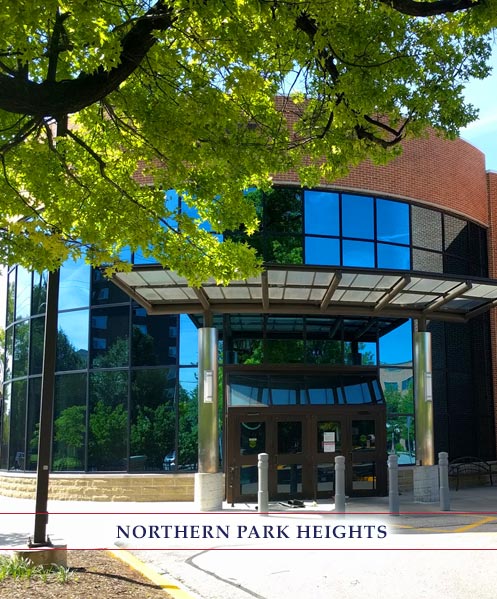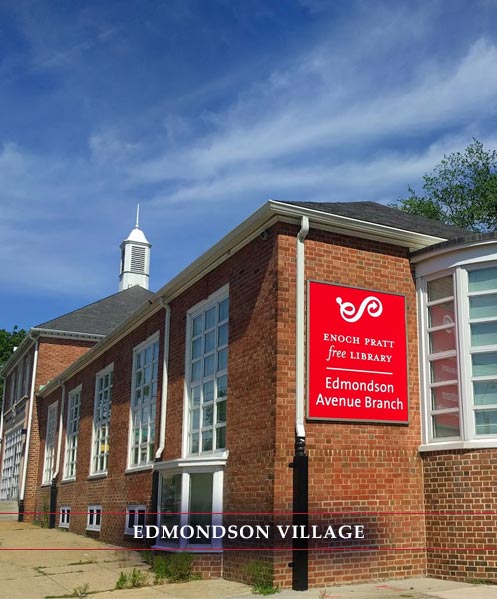Metropolitan Baltimore Council AFL-CIO Unions
2701 W. Patapsco Avenue #110 * Baltimore, MD 21230
Phone: 410-242-1300 Fax: 410-247-3197
October 2017
TO: Candidates for Offices
RE: Questionnaire
The Metropolitan Baltimore Council will be conducting interviews for candidates seeking office in the June 2018 primary election.
We will have a panel of unions conducting the interviews at our office, 2701 West Patapsco Avenue, Suite 110. The interview normally takes approximately 30 minutes. Please contact our office at 410-242-1300, to schedule an interview.
If you are interested in receiving labor’s endorsement, please complete the enclosed candidate questionnaire and return it to the Baltimore AFL-CIO, at your earliest convenience. If you have any campaign literature, we would appreciate a copy for our files. It is very helpful for the Interview Panel to have your questionnaire prior to your scheduled interview.
As in the past, any candidate who fails to complete and return our questionnaire will not be considered for endorsement.
If you have any questions, regarding this matter, please do not hesitate to call.
Sincerely,
Jermaine A. Jones
President
opeiu 2, afl-cio
Attachment: Candidate Questionnaire
Metropolitan Baltimore Council AFL-CIO Unions
CANDIDATE QUESTIONNAIRE – 2018
Candidate for: State Delegate – 41st District
Name: Samuel I. “Sandy” Rosenberg
Address: 2218 Angelica Terrace
City/Zip: Baltimore, MD 21209
Phone: Home: Office:
Cell: 443-621-3702 Fax:
E-mail: delsandy@aol.com
Please print
Present Occupation: Who is your Employer: University of Maryland School of Law
Party Affiliation: (Please check)
DEMOCRAT Republican Independent Other
Congressional Dist: Legislative Dist: 41st Councilmanic Dist:
Have you ever received labor’s endorsement? YES No
If yes, when?
Previous elected/appointed office(s): State Delegate
Length of service: Since 1983.
1. Why should organized labor support your campaign? Please explain.
I have been a consistent supporter of legislation that would benefit the working men, women, and families of our state. I admire the crucial role that unions have played in the accomplishments of liberal coalitions in the 20th and 21st centuries. I have taken the initiative by successfully sponsoring the Lillie Ledbetter Act, which protects the rights of all workers to secure redress for discrimination in compensation. I have spoken with AFSCME about legislation to protect worker rights should the Supreme Court overturn precedent in Janus v. American Federation.
2. Have you ever been a member of union? If yes, please give the union name, local number, and dates that you have been a member.
No.
3. Would you sponsor and/or support legislation protecting workers rights’ to organize unions and engage in collective bargaining? Please explain.
Yes, I would support future efforts to protect the right to organize and engage in collective bargaining. I have an extensive history of supporting and sponsoring legislation protecting workers rights’ to organize unions and engage in collective bargaining. Most recently, during the 2017 session I co-sponsored legislation establishing collective bargaining rights for community college employees.
4. Approximately 25,000 state and higher education employees are currently covered by collective bargaining contracts with AFSCME. Some agencies, including the Judiciary, are excluded. Some employees, such as special appointees and at will employees, are also excluded. Some, but not all local governments have collective bargaining. Do you support expanding collective bargaining coverage to include state employees and local government employee that have been left out?
Yes, I would support efforts to extend the benefits of collective bargaining to as many state and local government employees as possible.
5. In 2010 Baltimore County Citizens overwhelmingly agreed that it is important to keep government employees focused on their jobs and not in labor contract disputes (especially Public Safety Employees), so they voted to pass a referendum question supporting interest-binding arbitration for all County Employees. Baltimore County employees subsequently won the right to have interest binding arbitration to settle disputes or impasses in contract negotiations but those rights were unnecessarily limited through legislation to wages. According to this process, when during the negotiations process, labor or management declare an impasse and cannot agree to certain provisions of the contract, a neutral, 3rd party professional arbitrator will be called into resolve the dispute. Both the union and management agree that the decision of this arbitrator is binding and final. Do you support interest binding arbitration for contract negotiations for city, county, state, and federal employees? As an elected official, would you support?
Yes, I would support any legislation in the future that reduces the amount of time public sector employees are locked in labor contract disputes.
6. Under a Labor Peace Agreement, the company agrees to a fair and democratic process (neutrality/card check) for its employees to use to achieve union representation, should said employees choose to unionize. Would you sponsor or support legislation that would make private companies, such as hotels, that receive public assistance in the form of tax breaks, payment in lieu of taxes (PILOT), or other forms of public subsidy, be required to agree to a Labor Peace Agreement?
Yes, I would support legislation incentivizing private companies receiving public subsidy to adopt Labor Peace Agreements.
7. Would you sponsor and/or support legislation that would prohibit employers from compelling workers to attend mandatory meetings to listen to their employers religious and political beliefs, including the employer’s beliefs about joining a union?
Yes, I would support such legislation, and I have been working with AFSCME on introducing legislation in MD based on bills in CA and NY that protect the First Amendment rights of public sector employees.
8. Would you be in support of the Right-to-Work Law in the State of Maryland?
No, Right-to-Work laws are unconscionable.
9. Would you sponsor and/or support legislation to insure large employers, like Wal-Mart, who build stores over 75,000 square feet be required to pay a “living wage”, health benefits and be required to adhere to local hiring provisions to ensure that development has a positive and responsible economic and fiscal impact on our community?
Yes, I would support legislation to incentivize providing a living wage and health benefits to Maryland workers. I would also support legislation that incentivizes local hiring.
10. Disputes have arisen around employer’s self-insured employee healthcare programs. Audits and budget analysis appear to suggest some governments are running for-profit healthcare programs and healthcare surplus funds are being diverted for use in unrelated areas. This clearly suggests that employees are therefore paying much higher than their negotiated healthcare splits for employer self-insured healthcare coverage. As an elected official, will you sponsor legislation that would force government employers with self-funded insurance programs to be more transparent with actual claim cost, rebates and other refund programs?
Yes, I would support legislation to bring more transparency to employers’ self-funded health insurance programs.
11. Would you sponsor and/or support legislation that would require all contractors bidding on public works jobs to provide health benefits for their employees?
At the request of LiUNA – Balt/Wash District Council, I have asked that legislation be drafted to provide a bid preference to contractors that pay for employee health care expenses for employees in Maryland. I welcome the input of the AFL-CIO in securing passage of the Maryland Responsible Workforce Development Bid Preference Act of 2018.
12. How would you address the increasing health care cost for active and retired city employees?
I support the City of Baltimore’s recent action to shift its health care plans to a self-funded model, which decreases external administrative costs and provides the City with greater flexibility in determining premiums. Administrative costs are a huge burden on individual employees premiums, and I support appropriate efforts to reduce them over time so that the savings can be passed onto employees.
13. In recent years legislation has been introduced that would move public employees retirement from a defined benefit plan to a defined contribution plan (401K). Do you support such a plan? Why or why not?
I support efforts to keep public employees on a defined benefit plan so that they can retire with dignity and security. Defined benefit plans ensure that public employees are compensated in retirement in the same manner in which they were compensated while working.
14. Contracting out of services is sometimes seen as a way to save money and/or make government more efficient. Do you see outsourcing as appropriate in any circumstances? If so when?
Public faith in the vital work that government does cannot be taken for granted. One way to maintain that faith is a competitive process whereby a government unit would submit its proposal in response to a submission by a third party.
15. The food and beverage concessions workers in Thurgood Marshall BWI Airport have a lower standard of wages and benefits than they did ten years ago. This is due to a business model under the contract company AirMall that was brought in by Governor Erlich. Governor Hogan could make changes now under the AirMall contract but has refused to do so. Would you use your office to cause the food and beverage contract at Thurgood Marshall BWI Airport to go out to bid with a requirement of Labor Peace, Worker Retention and minimum pay of $15.00 an hour? How do you think you could help make this happened?
As a member of the General Assembly leadership, I am an effective and strategic advocate for labor. I have stood with labor consistently over the years and will continue to use my position to push for better working conditions, not just at Thurgood Marshall BWI Airport, but everywhere in Maryland.
16. Would you sponsor and/or support legislation that would disqualify any company that has a record of violating labor laws, wage and hour laws, anti-discrimination laws, or that are involved in protracted labor disputes from bidding or receiving any public contracts?
I would support incentivizing government agencies to contract with companies that have clean labor records. It is important to reward companies that are good corporate citizens and to give the private sector incentives to operate in compliance with law and labor agreements.
17. There are just over 40 public charter schools in the state of Maryland, and the vast majority of them reside in Baltimore City. The large, out-of-state charter operators would like to weaken state law to make teachers and staff employees of the charter board, rather than employees of Baltimore City Public Schools. This would remove all protections that teachers and staff have under the collective bargaining agreement between the teachers union and the school board. This would also limit oversight of these privately run public schools by taking them out from under the purview of BCPS, as well as giving these charters a “blank check waiver” from any local school board policy. Should charter school teachers and staff be considered employees of the charter school or of the local school board? Should oversight of these schools be weakened?
Charter schools should continue to be held accountable for the student outcomes they have agreed to in their charters. Oversight of these schools should not be weakened. In addition, teachers and staff should be covered by the collective bargaining agreement between the teachers union and the school board. I remain open to working with KIPP and the BTU, if necessary, upon the expiration of their existing ten-year agreement.
18. Should government divert funds from public schools by giving vouchers (either a tax credit, or even a tax rebate) to parents who want to send their children to private or religious schools, including through the BOOST voucher program? Please explain your answer.
I support both the BOOST program and increased state funding for pre-K-12 public schools that provides for the needs of children who are FARM eligible and those for whom English is a second language. We can do both.
19. The state is currently studying revisions to the formula that determines the amount of aid given to a local school system from Annapolis. Over the past few decades, the number of Maryland public school students living in poverty has more than doubled, going from 22% in 1990 to 45% statewide today. In Baltimore City alone, well over 90% of our public school students live in poverty. What can the state—and the funding formula—do in order to be sure these students living in poverty get the best education we can give them? If the answer is more funding for public schools, from where is that money to come?
The state funding formula should take into account the additional needs of students living in poverty, both educational and social. If we are to raise more money for public schools, I would support a more progressive way of raising the money than the current reliance on lottery or slots revenues.
20. Baltimore City now has 51 of its public schools serving as designated community schools. A community school is a public school that partners with some entity (UM-Baltimore or the Baltimore YMCA, just to name a few examples) to provide either after-school academic or social services to both students and members of the community. How can state government work to expand the community school strategy in Baltimore and the rest of Maryland?
As I mentioned in my answer to question 19, the state funding formula needs to take into account the additional needs of children living in poverty. This most certainly includes the additional needs for after-school academic and/or social services vital to the success of young people in impoverished communities around Maryland.
21. Verizon has built its high-speed FiOS fiber network in the suburbs surrounding Baltimore and Washington DC, but it has not built FiOS in Baltimore City. Nor has it built FiOS in other Maryland cities like Frederick. Will you work with us to try to get Verizon to build out its high-speed FiOS fiber network to Baltimore and all rural communities?
Yes, I will work to expand access to inexpensive and fast broadband internet. As was the case with the Tennessee Valley Authority’s rapid expansion of access to electricity, Maryland needs an economic development agency focused on rapidly building out cheap and fast broadband to underserved communities both in rural and urban in Maryland.
22. Participation in the democratic process should be available to all that are eligible and willing to participate. With the recent attack on voting rights and the weakening of the Voting Rights Act, working families see their ability to participate in democracy through voting, under attack. As the United States Postal Service is still one of the most trusted means of communication and the American Postal Workers Union as an advocate for voting rights; what is your position on the need for vote by mail legislation on the state level? Would this be legislation that you support?
I have long been involved in the fight to ensure all citizens have access to the ballot, including those whose schedule or physical condition prevents them from voting in person. Additionally, I successfully sponsored legislation to prevent voter suppression of the kind recently seen in Alabama where voters received robo-calls from a “Bernie Bernstein from the Washington Post” who would allegedly pay for false accusations of sexual misconduct. These types of dirty tricks nefariously pervert our democratic process.
23. Would you sponsor and/or support legislation to increase rapid transportation in and out of Baltimore City by extending and/or increasing routes of buses, light rail, subway, MARC and AMTRAK services? Also, would you support legislation for funding public awareness campaigns to increase ridership on all?
I supported the Red Line project, and I would support similar projects in the future to increase rapid transportation options in and out of Baltimore City.
24. The production, transportation, and distribution of energy create and maintain many jobs in many industries throughout Maryland. Many forms of resources and technology are used in this process. Coal, natural gas, oil, wood, biomass, waste, wind, solar, wave and nuclear are all currently utilized to produce energy. What is your vision as we attempt to move toward energy independence and at the same time seek to address climate change?
I support strengthening the Renewable Portfolio Standard. If such legislation would result in job losses, it should also provide job retraining and other protections for affected workers. I would be particularly interested in investing in clean-energy job training because this would create 21st Century jobs for Marylanders, many of whom have lost good paying jobs in the new economy.
25. Railroads play an important part in the transport of interstate commerce throughout the country. They currently operate over 99% of their trains with a minimum crew of at least two persons. They have a good safety record when properly regulated and inspected by the Federal Railroad Administration (FRA) and
Maryland State Railroad Inspection Division. However, the business climate today is to lean toward robotics, automation and autonomous operations. Railroads are no different with their desire to operate their trains in this fashion.
The FRA over the last several years was in the process of developing a rule to require a minimum number of crew members on freight trains. However, the Trump Administration withdrew the rule and halted the process of developing the regulation. Would you as a legislator support legislation that would require a minimum of two crew members on all freight trains operating in the State of Maryland?
I would support legislation supported by testimony demonstrating the necessity for the two crew member requirement on safety grounds.
26. Maryland has a railroad inspection program that is a vital supplement to the national program established by the Federal Railroad Administration (FRA). The program monitors the safety practices of each railroad company operating in Maryland by conducting inspections of railroad track, operating practices and motive power and equipment. This program also monitors and assists certain railroad operations that are not under federal jurisdiction. State inspectors are certified by the FRA. Maryland has 10 railroads that operate in the State. There is over 20,000 miles of track throughout the State. Currently there is only one-track inspector in the department.
Would you as a legislator support legislation that would authorize the collective bargaining representative for each craft of railroad worker and the State Legislative Director for each such craft to monitor the safety practices and operations on each railroad, and authorize each to accompany state or federal inspectors in inspections, examinations, and investigations on railroad property as may be necessary to determine compliance with applicable federal, state and local safety laws and regulations?
Yes, I would support legislation that ensures our railroads comply with all relevant safety laws and regulations. Maryland’s citizens should be safe in their homes and businesses in and around railroad right of ways.
27. One of the loopholes in construction on State and Local projects that require contractors to pay prevailing wages is their ability to sub out the manufacture or fabrication of the materials needed to off-site entities. This work is done in shops located within and out of State at many times substandard wages. Would you as a legislator support legislation that would require prevailing wages be paid to all employees engaged in the manufacture or fabrication of materials used in projects that are required to be paid prevailing wages, whether done on or off site?
Yes, I support legislation that would close loopholes regarding paying workers prevailing wages.
28. Do you support the strengthening and expansion of Prevailing Wage on construction? If elected, would you incorporate prevailing wage in procurement standards? Please explain your answers and how you would achieve this.
I support any and all efforts to ensure construction workers are paid a fair wage. State procurement standards should incentivize the use of construction firms that pay prevailing wages over firms that do not.
29. Project Labor Agreements (PLAs) ensure a highly qualified and skilled workforce, training and apprenticeship opportunities for residents, and a pathway to middle-class careers. PLAs have proven that they are the key to completing construction projects on time and on budget, while simultaneously creating high quality, family supporting jobs with healthcare, pensions, and a clear, upward career path for workers and residents. If elected, would you introduce and support legislation in favor of the use of PLAs on public works projects? Would you urge developers and contracting companies to adopt PLA language in their bid documents? Please explain your answer, specifically what strategy you would use to see that PLAs are incorporated on public and private development?
I would adopt an approach where public and private development is given an incentive to adopt Project Labor Agreements (“PLAs”). For public development, the state procurement standards should require the use of PLAs for projects above a certain size. For private development, providing additional tax benefits to employers that use PLAs would provide a tangible incentive that further makes the business case for PLAs.
30. Many Construction workers experience some form of wage theft. This could be the contractor not paying overtime, pay for time worked or the company completely not paying the workers. When workers submit non-payment of wage claims to state and local government agencies authorities they experience delays in recouping the stolen wages. Often the government will not impose liquidated damages and penalties, or the worker has to settle for less than they are actually owed. Would you be willing to help draft, lobby, and vote in favor of legislation that allows workers to take a private right of action that guarantees legal fees and increased liquidated damages otherwise known as a wage theft law
Yes, I would support wage theft legislation that ensures workers are paid what they are owed in a fair and expeditious manner.
31. Baltimore Washington Building Trades Union craft affiliates invest $20 million dollars a year in Maryland, training people to be professionals in the construction industry. These highly sophisticated apprenticeship programs, and our “Apprenticeship Readiness” Programs are incredibly important to the future of construction. We need to ensure that these next generations of workers have a career path to the middle class and are offered quality construction training. Will you support amending procurement standards to include language that mandates contractors have apprenticeship programs registered with the Maryland Apprenticeship and Training Council? Will you support efforts to ensure worksite journeymen-apprenticeship ratios maintain safety on the jobsite and ensure quality on-the job instruction for registered apprentices? Would you support the creation of apprenticeship programs for City/County municipality careers?
Yes, I support apprenticeship programs and would support amending state procurement standards to mandate their use by contractors for the State. Last session, I sponsored legislation to create an apprenticeship program aimed at areas where college education levels are lowest in the State.
32. It’s a known fact that all workers benefit from unions. Employee’s benefit most when a union’s is in place to negotiate with employers on their behalf. Through their collective bargaining power and influence in the legislative arena, unions set pay standards, benefit standards and workplace conditions and protections. Union employees make an average of 30% more than non-union workers, 92% of union workers have job-related health coverage versus 68% of non-union workers, and they are more likely to have guaranteed pensions than non-union employees. Unions play an important role in creating and maintaining a strong middle class in America.
Would you as a legislator support a requirement to include; prevailing wages, project labor agreements, labor peace agreements and buy Maryland/buy America first provisions, in all State procurements and tax incentive policies; and if not why?
I would support legislation to incentive contractors to use prevailing wages, project labor agreements, labor peace agreements, and Buy Maryland/Buy America first provisions in state procurements and tax incentive policies.
I understand and authorize this questionnaire for the Metropolitan Baltimore Council AFL-CIO Unions potentially be made public.
Signature Date 11/28/17
opeiu2, afl-cio
Please return completed questionnaire to address listed above or via e-mail: adminclc@verizon.net
(Subject line: Statewide Questionnaire Return)













